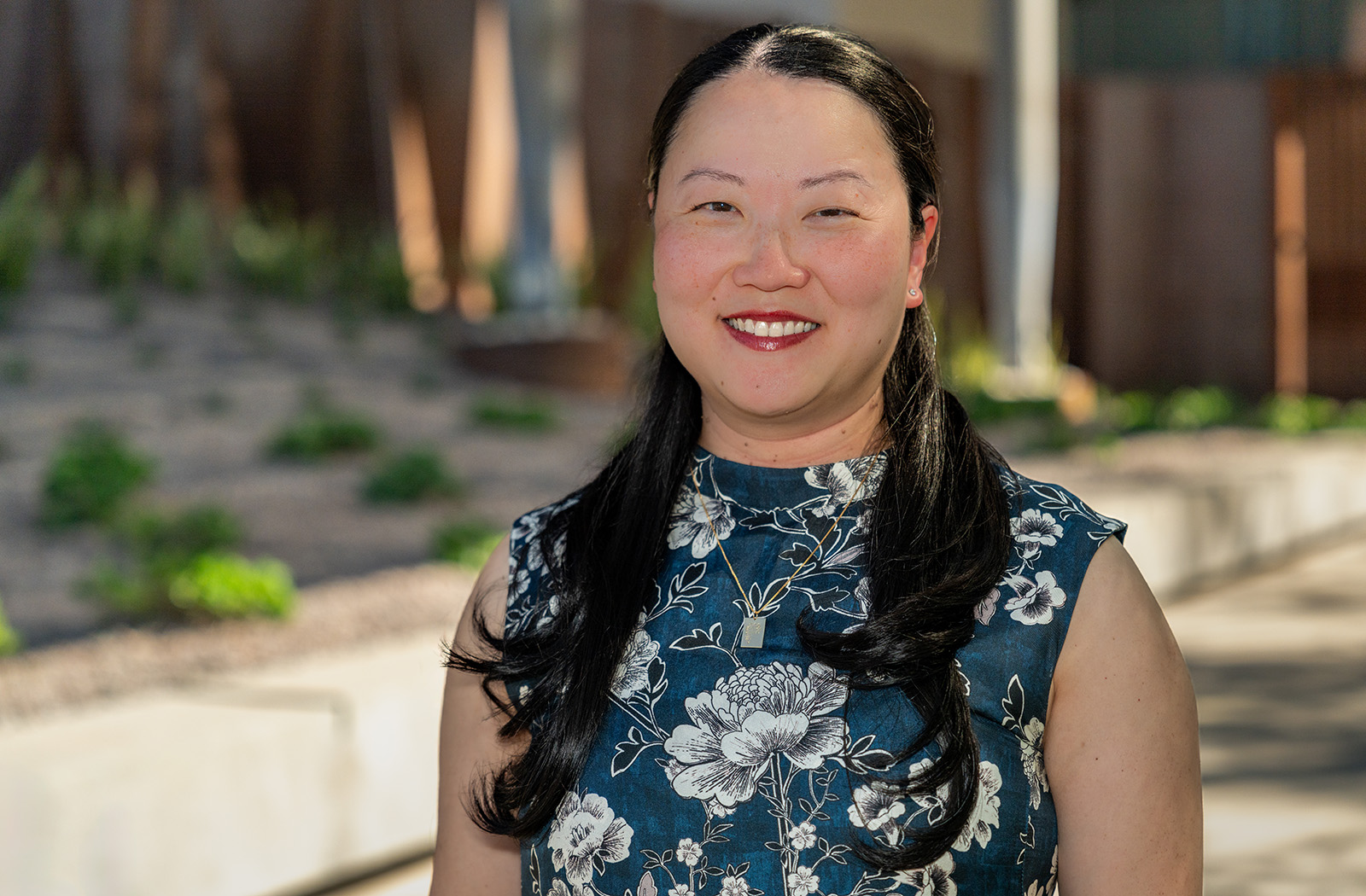
Women in Medicine and Science - I-Hui Chiang, MD

I-Hui Chiang, MD, is committed to advancing the field of interventional cardiology and to mentoring the next generation of physicians.
In pursuit of those goals, she serves as an assistant professor of Internal Medicine in the Division of Cardiology, the program director of the Interventional Cardiology Fellowship, and director for the Cardiology Clerkship at the University of Arizona College of Medicine – Phoenix, as well as co-director of the Extracorporeal Membrane Oxygenation program at Banner – University Medical Center Phoenix — where she is clinically affiliated.
“I chose interventional cardiology because I love the holistic care it allows me to provide," Dr. Chiang explained. "I see patients in outpatient, inpatient and procedural settings, and I participate in both acute and preventative care. The high acuity of the specialty and the ability to perform life-saving procedures make it incredibly rewarding.”
Interventional cardiology focuses on diagnosing and treating heart and blood vessel conditions using minimally invasive procedures, including stenting and angioplasty. Dr. Chiang strives to proactively address conditions affecting the heart’s chambers, valves and arteries. One of the pressing issues Dr. Chiang is tackling is the high mortality rate in patients with cardiogenic shock — when your heart cannot pump enough blood and oxygen to the brain and other vital organs. "Despite advances in emergency and acute care, cardiogenic shock remains a significant challenge," she said.
She is spearheading the creation of a multidisciplinary cardiogenic shock team at Banner – University Medical Center Phoenix. Her vision is to create a network of teams across Banner facilities, implementing a "hub and spoke" model for early recognition and management.
Dr. Chiang is equally passionate about addressing disparities in health care. "I work with local women’s organizations to advance cardiac care education," she noted. "It’s vital that we address gaps in care and ensure equitable access to life-saving interventions."
For Dr. Chiang, success is defined not only by the care she provides but also by the systems she helps improve.
"I hope to inspire my trainees to have a deep passion for their patients and academic curiosity," she said. And as a woman in a male-dominated specialty, Dr. Chiang emphasized the importance of collaboration and diversity in medicine. "Diversity improves patient care, education and well-being for everyone in the medical field."
Looking ahead, Dr. Chiang is excited about the continued advancements in interventional cardiology, which have already transformed patient outcomes. “When I started my career, we couldn’t have imagined some of the capabilities we now have. In the next 10 years, I hope to see even more innovation and greater diversity in the field," she said.
Dr. Chiang earned her medical degree and completed her residency at the University of Texas Southwestern at Dallas. This was followed by fellowships in general and interventional cardiology at Baylor College of Medicine.
Read more Women to Watch in Medicine and Science profiles
About the College
Founded in 2007, the University of Arizona College of Medicine – Phoenix inspires and trains exemplary physicians, scientists and leaders to advance its core missions in education, research, clinical care and service to communities across Arizona. The college’s strength lies in our collaborations and partnerships with clinical affiliates, community organizations and industry sponsors. With our primary affiliate, Banner Health, we are recognized as the premier academic medical center in Phoenix. As an anchor institution of the Phoenix Bioscience Core, the college is home to signature research programs in neurosciences, cardiopulmonary diseases, immunology, informatics and metabolism. These focus areas uniquely position us to drive biomedical research and bolster economic development in the region.
As an urban institution with strong roots in rural and tribal health, the college has graduated more than 1,000 physicians and matriculates 130 students each year. Greater than 60% of matriculating students are from Arizona and many continue training at our GME sponsored residency programs, ultimately pursuing local academic and community-based opportunities. While our traditional four-year program continues to thrive, we will launch our recently approved accelerated three-year medical student curriculum with exclusive focus on primary care. This program is designed to further enhance workforce retention needs across Arizona.
The college has embarked on our strategic plan for 2025 to 2030. Learn more.